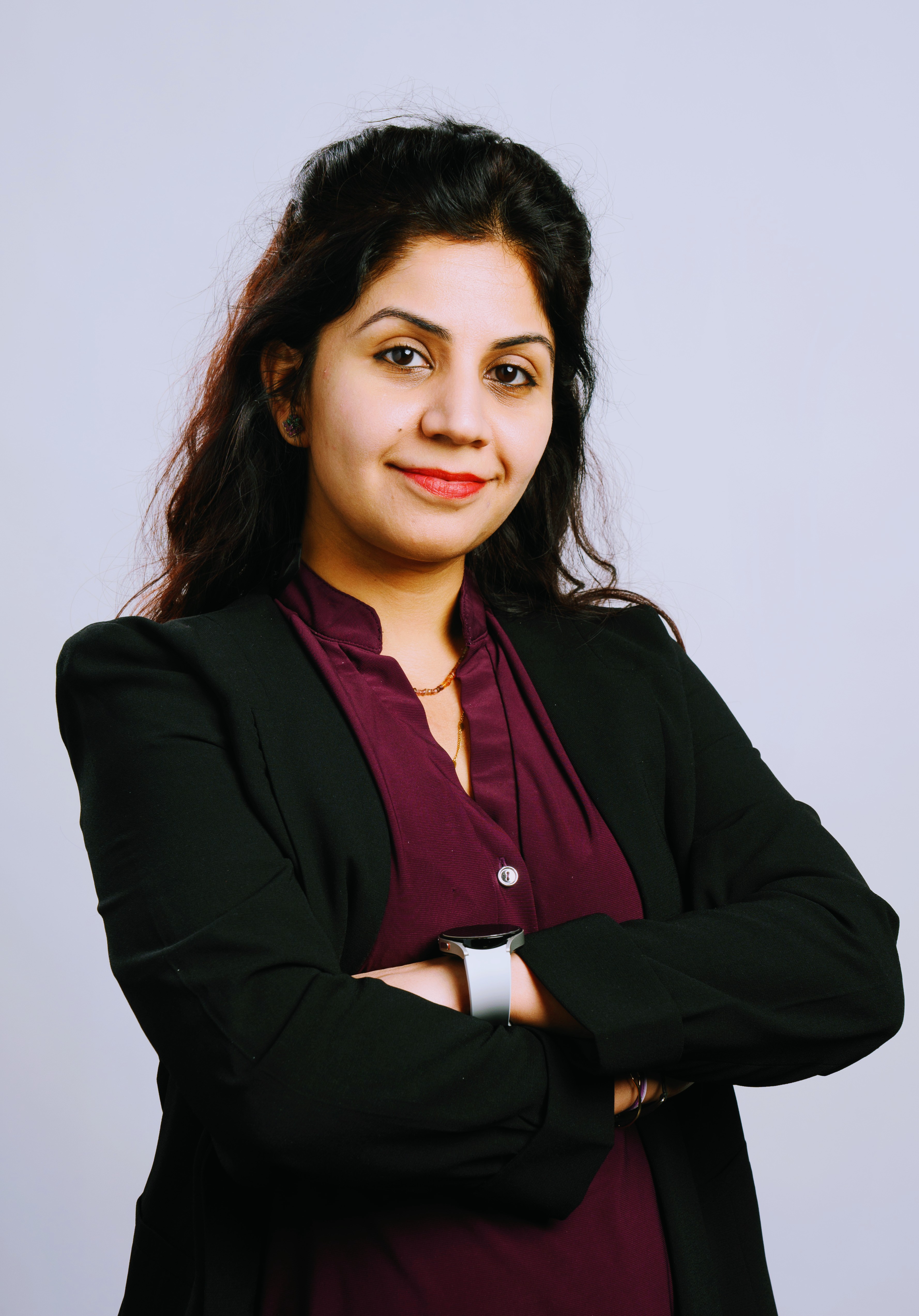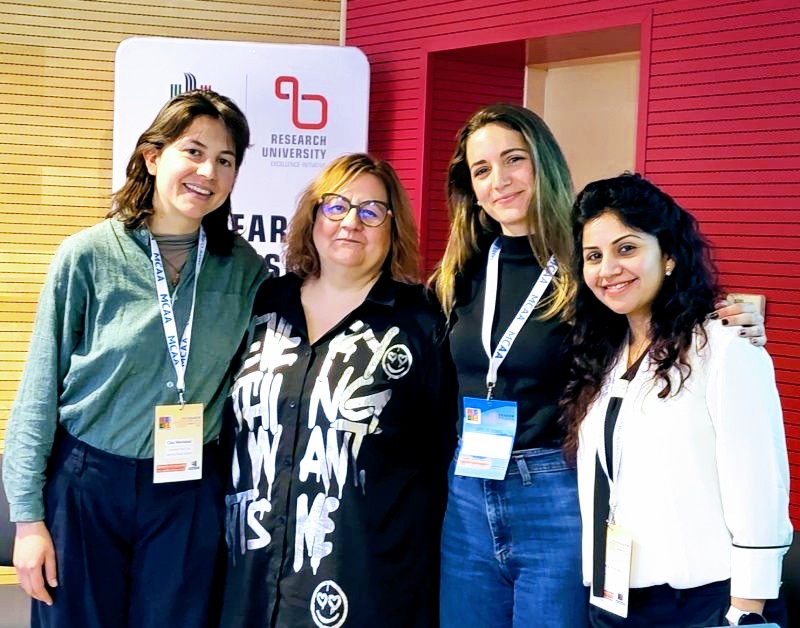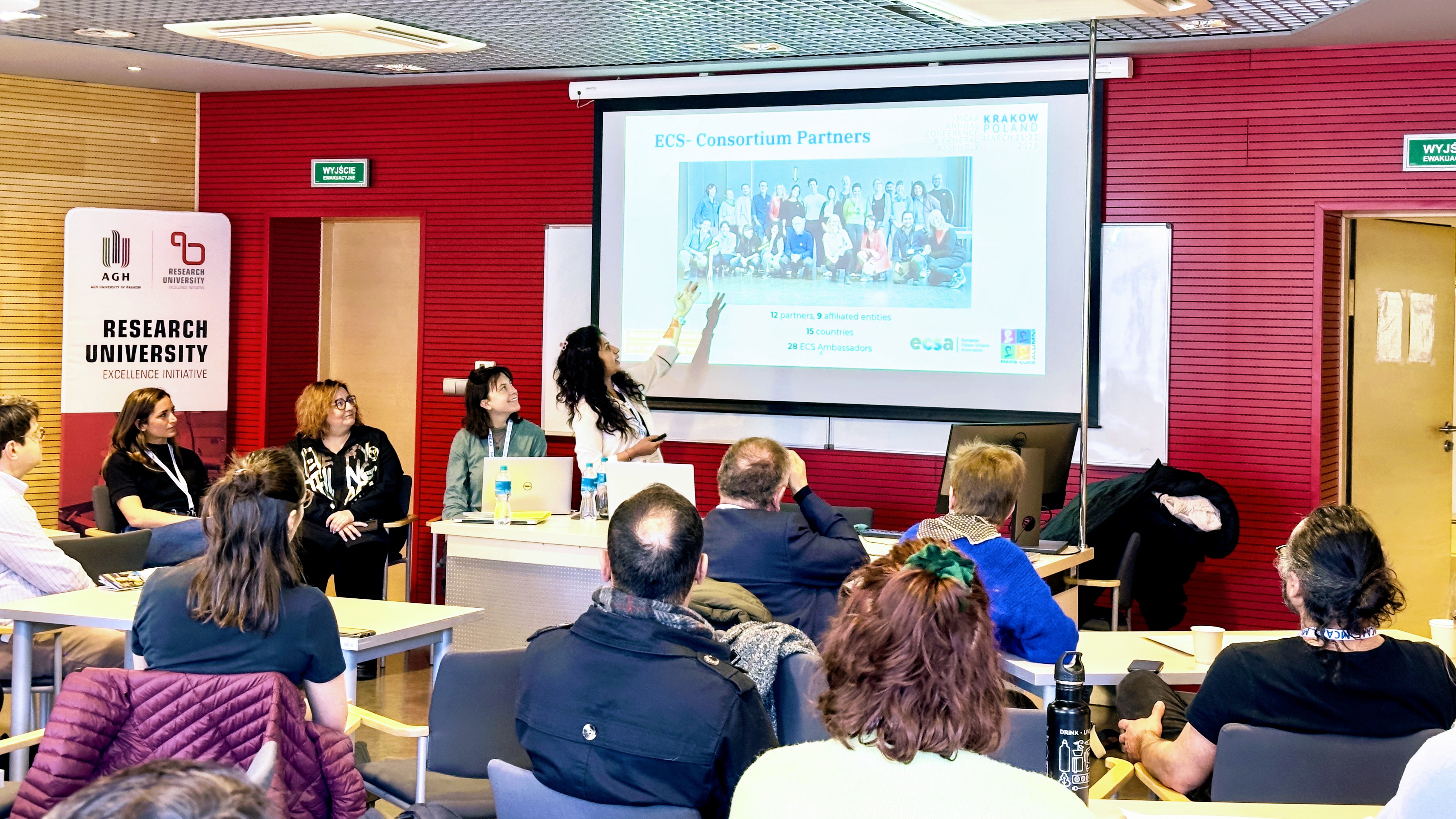MCAA Annual Conference 2025 - Citizen Science Engagement: Who Benefits and Why It Matters
Newsletter
The 2025 MCAA Annual Conference kicked off with a vibrant satellite event on Citizen Science, uniting researchers passionate about making science more inclusive and impactful. The session covered everything from policy shifts to grassroots projects, highlighting the global reach of Citizen Science and practical ways for researchers to get involved.
Opening the Doors of Science: Citizen Engagement in Focus
The 2025 MCAA Annual Conference kicked off with an energising satellite event on Citizen Science (CS) that brought together curious, committed researchers from across disciplines and career stages. Co-organised by Pooja Khurana (MCAA), Mireia Ros (Science for Change), and Cléa Montanari (Université Paris Cité / Learning Planet Institute), the session opened up a timely conversation on the meaning and importance of citizen engagement in research. At its core, the event posed a powerful question: What happens when we open the doors of science to everyone and who benefits?
We started by unpacking the many names CS goes by: participatory research, community science, public engagement, civic science, and the wide variety of ways it’s practised (Shirk et al, 2012). Despite the differences, a common thread runs through them all: meaningful public involvement in the research process. Whether it’s co-designing research questions, gathering data or helping interpret results, CS offers a more inclusive, democratic way to create knowledge with people, not just about them.

Pooja Khurana

Satellite event speakers from left: Cléa Montanari, Bogna Gawrońska-Nowak, Mireia Ros and Pooja Khurana
Real-World Impact: Citizen Science Across Europe
This ethos is gaining traction at every level - global, EU, and national. From the UNESCO Recommendation on Open Science (2021) to Horizon Europe, citizen participation is becoming central to how we rethink research for the public good. The European Citizen Science (ECS) project is helping to lead the way. With 27 national ambassadors, it is developing policy recommendations, practical tools and training resources that are actively strengthening the CS ecosystem across Europe.
One of those ambassadors, Bogna Gawrońska-Nowak from the Kraków University of Economics and the Institute of Urban and Regional Development in Warsaw, shared real-world insights from participatory experiments in Łódź and Kraków. Her research showed that public trust in CS outcomes isn’t one-size-fits-all but varies by region, education level and age (Bedessem et al, 2021). Her takeaway: “To truly connect, we need to meet communities where they are, not where we assume they’ll be.”
We explored the impact CS is making in other EU countries. In Belgium, the ISALA project worked with over 3,000 women to collect vaginal microbiome samples and lifestyle data, breaking taboos, generating critical health insights and centering women’s lived experiences in research. It showed the transformative potential of CS, not just for scientific outcomes but also for equity, awareness, and collective community empowerment.
Building a Stronger, More Inclusive Research Culture
These examples prompted deeper reflection: How do we define value in research? Who gets to decide what counts? These questions align closely with the values behind initiatives like CoARA (the Coalition for Advancing Research Assessment), which encourages institutions to move beyond metrics like publication counts and embrace broader, more inclusive measures of impact.
Participants explored this sentiment through a workshop examining Citizen Science’s value across five layers: themselves as researchers, the affected communities, those in power, the environment and wider society. CS, many said, made them feel more connected to people, to purpose, to something bigger than their work. Concerns were raised around data credibility, volunteer compensation and power dynamics. But debate led to constructive dialogue and reaffirmed the importance of interdisciplinary exchange.
To close the day, we turned the spotlight on how researchers can get more actively involved in CS. The ECS Academy offers free, open-access training and networking opportunities via the eu-citizen.science platform. For those eager to deepen their expertise and connect with like-minded peers, the Network of Researchers for Citizen Science (NR4CS) is open to new members. You can register here or join the mailing list directly by emailing nr4cs-subscribe@eu-citizen.science.
The 2024 NR4CS Training Series presentations are available as open resources on Zenodo and the MCAA YouTube Channel. Looking ahead, the 2025 Training Series promises even more opportunities to learn and collaborate. In partnership with UPCité/LPI, the MCAA also launched a new initiative to support early career researchers who incorporate CS in their research proposals: “Public Participation in Research – A Workshop Series for 2025MSCA Postdoctoral Fellowship Applicants.” Registration is now open, and further information can be found here.
What truly stood out was the shared momentum in the room. Unlike past events where CS felt new to many, this session brought together both fresh faces and experienced voices, sparking deeper, more dynamic conversations. That mix reminded us that CS isn’t just a method; it’s a mindset. CS is science rooted in dialogue, open to critique and shaped by lived experience.
This session didn’t just inform; it energised. It wasn’t only about presenting projects; it was about building community, grappling with big questions, engaging with our participants and reimagining what a more participatory, inclusive science can be.

Pooja Khurana introducing the ECS Consortium to the audience.
Final Call to Action:
If you wish to stay involved, learn more, or collaborate with a vibrant Citizen Science community, then:
- • Join the NR4CS Network.
• Explore 2024 NR4CS Training Series presentations on Zenodo and the MCAA YouTube Channel.
• Register for the 2025 Workshop Series for MSCA applicants and learn more.
Because in the end, science isn’t something confined to labs or locked in journals. It’s something we live, question and create— together.
Pooja Khurana
X
LinkedIn
Orcid
Community Manager and ECS Project Officer, MCAA
pooja.khurana@mariecuriealumni.eu
References
UNESCO. (2021). UNESCO Recommendation on Open Science (SC-PCB-SPP/2021/OS/UROS). https://doi.org/10.54677/MNMH8546
Shirk, J. L., Ballard, H. L., Wilderman, C. C., Phillips, T., Wiggins, A., Jordan, R., McCallie, E., Minarchek, M., Lewenstein, B. V., Krasny, M. E., & Bonney, R. (2012). Public Participation in Scientific Research: a Framework for Deliberate Design. Ecology and Society, 17(2). http://dx.doi.org/10.5751/ES-04705-170229
Bedessem, B., Gawrońska-Nowak, B., & Lis, P. (2021). Can citizen science increase trust in research? A case study of delineating Polish metropolitan areas. Journal of Contemporary European Research, 17(2), 305–321. https://doi.org/10.30950/jcer.v17i2.1185
Khurana, P., & Montanari, M. C. (2024). Training resources from Network of Researchers for Citizen Science 2024 Training Series. https://zenodo.org/records/14419341
Khurana, P. (2025). Public Participation in Research – A Workshop Series for 2025 MSCA Postdoctoral Fellowship Applicants. https://www.mariecuriealumni.eu/news/public-participation-research-workshop-series-2025-msca-postdoctoral-fellowship-applicants